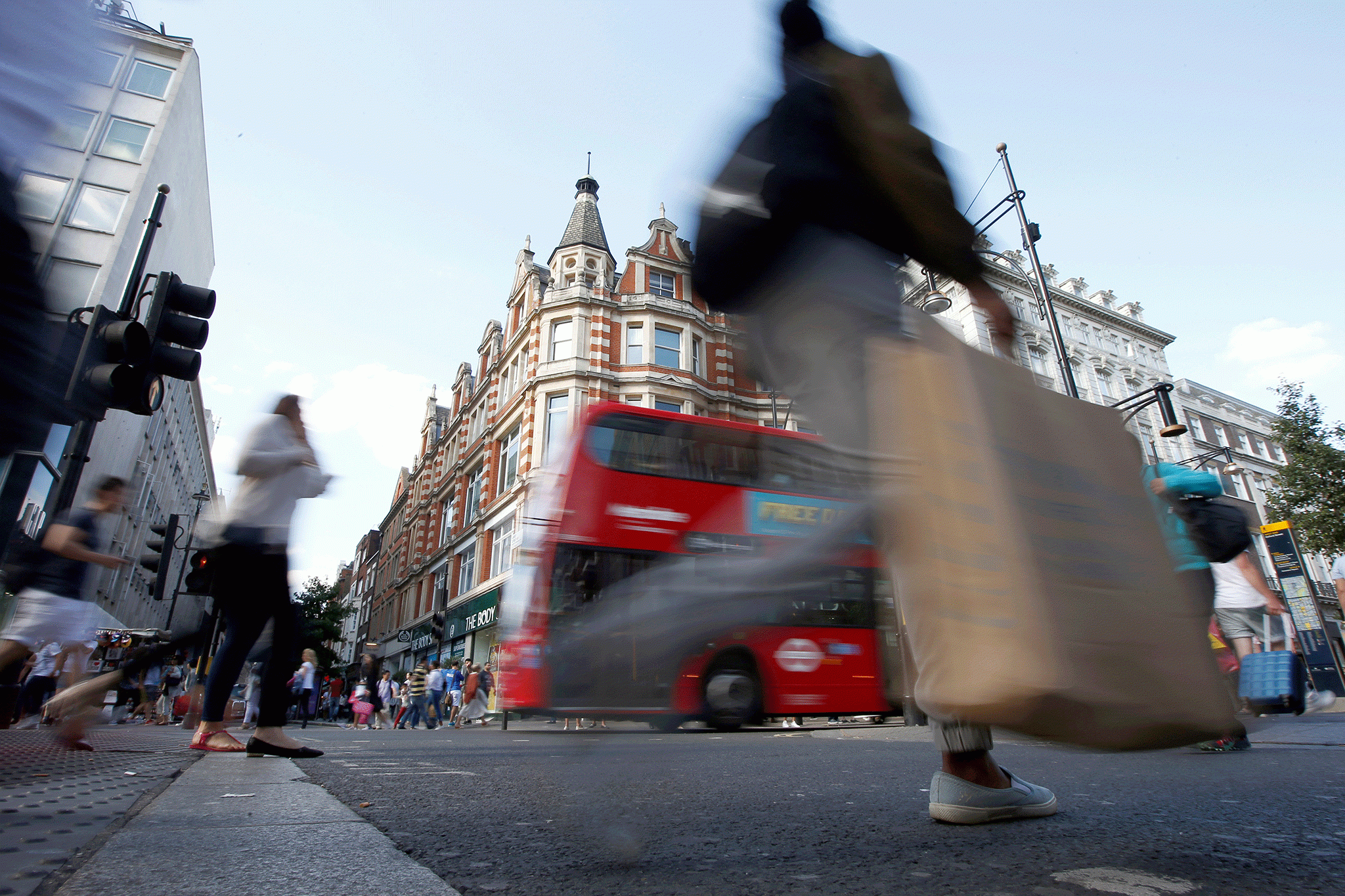Consumers are spending, but it doesn't change the fact that there will be an economic price to pay for Brexit
Don't believe the tabloid hype. The EU referendum has damaged the economy, and there will be a reckoning down the line

Your support helps us to tell the story
From reproductive rights to climate change to Big Tech, The Independent is on the ground when the story is developing. Whether it's investigating the financials of Elon Musk's pro-Trump PAC or producing our latest documentary, 'The A Word', which shines a light on the American women fighting for reproductive rights, we know how important it is to parse out the facts from the messaging.
At such a critical moment in US history, we need reporters on the ground. Your donation allows us to keep sending journalists to speak to both sides of the story.
The Independent is trusted by Americans across the entire political spectrum. And unlike many other quality news outlets, we choose not to lock Americans out of our reporting and analysis with paywalls. We believe quality journalism should be available to everyone, paid for by those who can afford it.
Your support makes all the difference.Super shoppers boost Brexit Britain. Economy powers ahead as doomsayers proved wrong!
That's what the headlines are saying in the wake of a rather sharp turnaround in the the YouGov/Cebr Consumer Confidence Index. It jumped by 3.2 points to 109.8 in August, the highest monthly rise since February 2013 when it improved by 3.5 points.
The figures were released just a day after the CBI’s latest retail survey, in which 35 per cent per cent of the retailers that took part said sales volumes were up in August compared with the pervious year, while just 26 per cent said they were down. The business group said the positive balance of 9 per cent compares with a negative balance of 14 per cent in July.
So fears of a post Brexit economic slump have been dashed. At least that’s what some of the tabloids would have you believe. And some of the pro-Brexit broadsheets too.
But hang on just a second. Taken in isolation these figures do indeed look good. The trouble is, you can’t just look at economic indicators like these ones and simply say “yowza, everything’s coming up roses”. Context is everything.
Let’s take those CBI numbers for starters. Here’s the view of retail analyst Nick Bubb, who knows a thing or two about interpreting retail sales data: “We flagged yesterday that the CBI Distributive Trades survey is a bit of a joke in the sector, but as a snapshot of mid-month High Street sentiment it was bound to make happy reading, given the boost from the warmer weather, and, alas, it continues to be widely followed by City economists and the press.
“It is, of course, not quantitative and when you read that 35% of retailers said that volumes were up in “August” and 26% said that volumes were down (ie a percentage balance of 9%), please remember that only 58 retailers took part…and that the survey was conducted between July 27th and August 12.”
The YouGov/Cebr survey has more credibility. It collects data on a daily basis throughout the month, conducting up to 7,000 interviews.
There are couple of interesting points to note from this month’s survey, however. While virtually every marker moved in a positive direction, one did not. It was people’s expectations for their job security over the next 12 months. How people feel about their jobs over that timescale is surely going to have a rather big influence on their spending habits going forward.
Then there is the view of Scott Corfe, director at the Cebr, which ties in with that. He says this: “Both inflation and unemployment are low, for now, which is undoubtedly supporting consumer optimism. However, this could easily change next year as the weakness of sterling pushes up the cost of imports. 2017 could be the year that consumers stumble.”
At this point people might accuse me of being a Jeremiah, of purposefully picking out the bad bits from the data to make my gloomy case.
But here’s the thing. Even if you dismiss the points I have made, retail is still just one part of the economy. The “all is well” mantra just hasn’t been borne out by the indicators that look at other parts.
Take the three most recent sets of Markit CIPS Data covering services, construction and manufacturing. They were all awful, pointing to an economy undergoing a contraction and giving lie to the notion that everything is awesome in Brexit Britain. We’ll know more when the next set of data comes out in a few days time.
Shoppers, however, can’t be expected to bail out the economy for ever. And even if the next batch of Markit CIPS surveys look a bit cheerier, the hard fact is that the Brexit vote damaged the economy. That damage may take time to be realised. But realised it will be.
All the tabloid happy pills in the world won’t change that.
Join our commenting forum
Join thought-provoking conversations, follow other Independent readers and see their replies
Comments